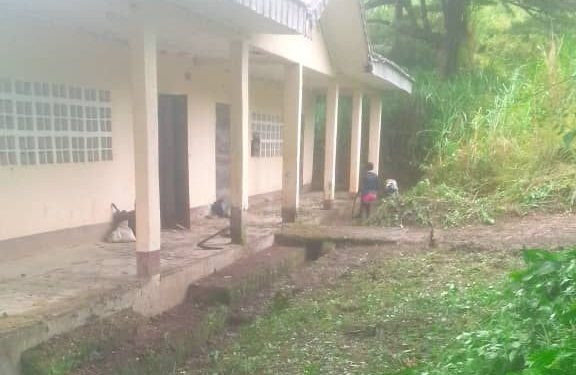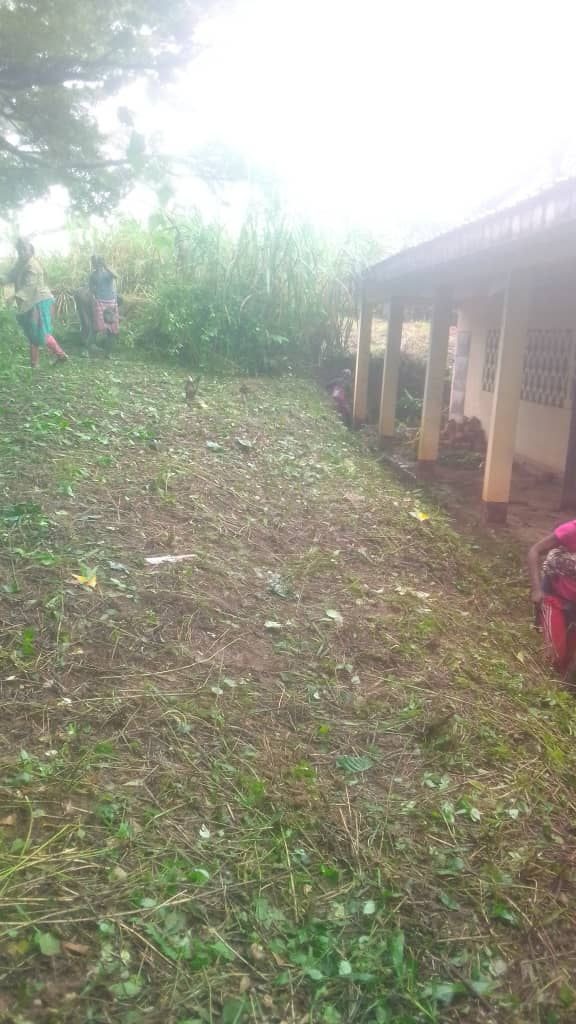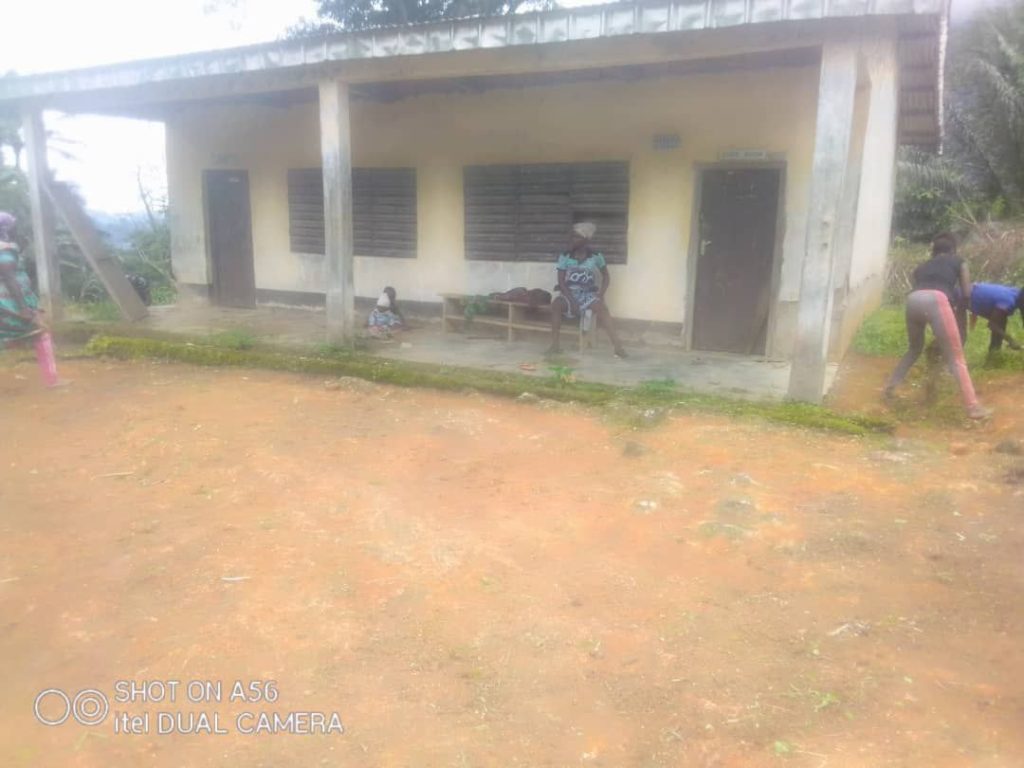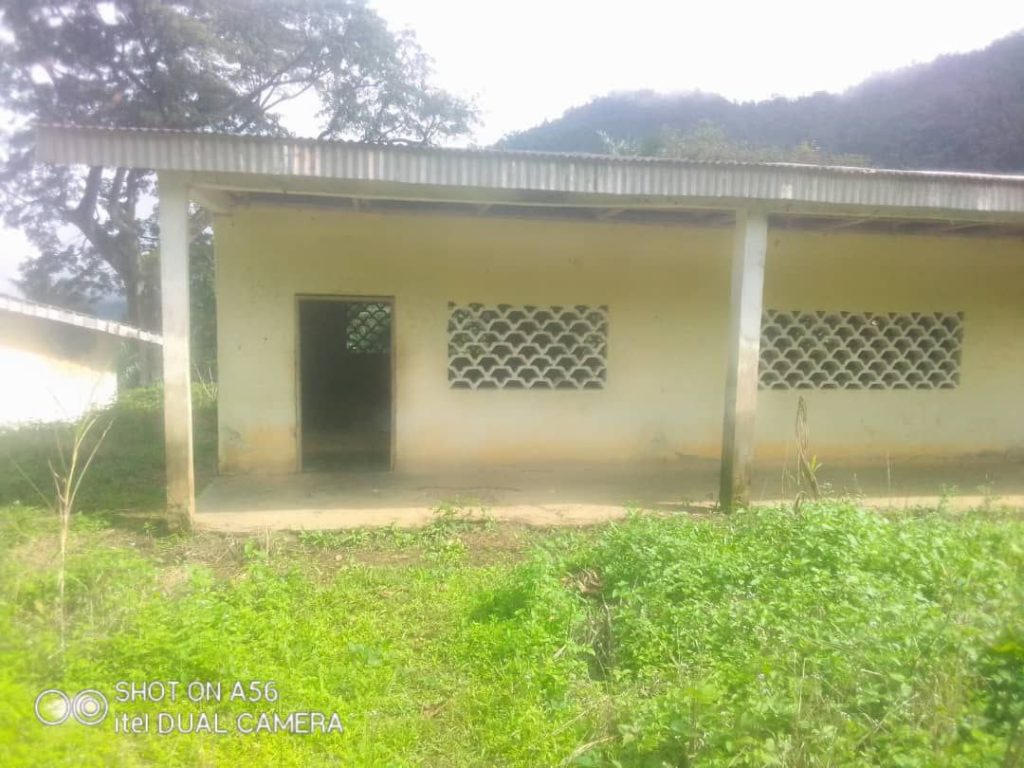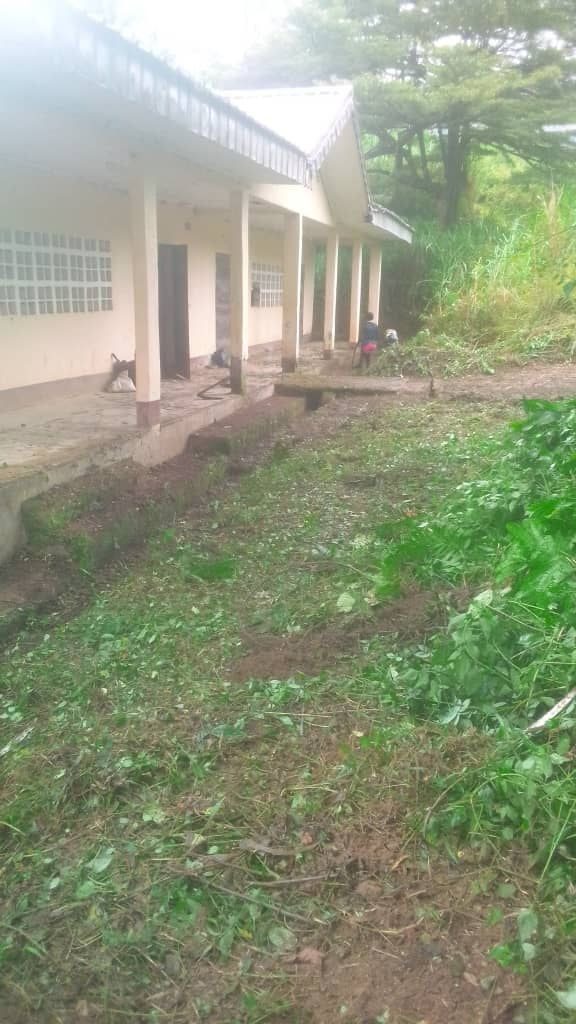Schools will be reopening their doors in Besali, a village in the Wabane Subdivision of Lebialem Division, this academic year for the first time since 2016.
Last week, school campuses in the village were busy with cleanup activities and the registration of students. Such momentum for children to go back to school has been absent since Ambazonia separatists banned schools after taking control of the village and other parts of Lebialem Division.
A few kilometers from Besali lies Bechati village, located at the foot of the Tofala Wildlife Sanctuary in Lebialem. The village community also organised a massive cleanup campaign last week, during which they cleared grass and revived school compounds that have entertained a single lecture for seven years.
Before the armed conflict, Bechati village operated six government schools: two nurseries, two primaries, and two secondary schools. But like in other villages in the Anglophone Regions of Cameroon, they were all closed late in 2016 due to the Anglophone lawyers-teachers strike that later turned into an armed conflict.
Parents were forced to send their children to schools in neighbouring Dschang, in the West, and to far-off places like Douala, Yaounde, Bamenda,, and Buea.
However, calm has progressively returned in Lebialem since soldiers dislodged separatist hideouts and killed two warlords — Ayeke (2020) and Field Marshall (2022).
The Wabane Development Association (WADA), an association of elites who are pushing for development in the Wabane Subdivision, has been encouraging villages to clean up their school campuses and register students.
Last week, they dispatched messages appealing to various villages in Wabane to clean up abandoned buildings and compile a list of them for follow-up.
The feedback from the villages has been positive.
“At the level of the WADA secretariat, we are getting indications from other schools that were not functional last year that they are preparing to open their doors because in all schools in the various villages in Wabane, the people have done what we call community works—they are cleaning both the functional and non-functional schools,” said Jong Calistus, Communication Secretary of WADA.
“For the past year, we had great attendance in both the primary and secondary schools in Wabane, and our wish this year is that we will multiply that number by three,” he hoped.
To encourage school resumption in Wabane, WADA launched the Wabane Education Forum last year. Through the forum, it plans to award didactic materials to schools that will be opening their doors this academic year.
Lack of benches, other infrastructures
Although many are optimistic about school resumption in Lebialem, one of the key concerns is the shortage of benches and other infrastructure for pupils and students.
In villages like Bechati, separatist fighters had long broken benches in schools and used them as firewood.
But this problem is not particular to schools in Bechati alone. The South West Regional Delegate of Basic Education, Elangwe Rose Bume, described the infrastructure shortage as a chronic problem facing primary schools across the Region.
“However, there has been a chronic shortage in terms of infrastructures despite the government’s effort to address this issue,” Rose Bume said during a back-to-school preparatory meeting in Buea on September 1.
“I want to still use this medium to put a plea to the state and other state holders to construct more classrooms and to build and equip schools in communities that have no nursery and primary schools,” she added.
Runaway teachers under pressure to return home
Elite and education authorities in Lebialem are asking government teachers who were posted to schools in the Division to resume duty.
Village development groups like the Taking Youths Development Association in Wabane, which has been coordinating back-to-school cleanups for the past weeks, say they badly need teachers to return to their duties because security threats have subsided.
In a memo released by the association’s secretary general, Ketu Nembuanyi, on August 17, he called on teachers of GS Wabane and GHS Mundane Wabane to “answer present in these schools for the said academic year”.
Back in Buea, the South West Regional Headquarters, education authorities have also warned against government teachers using insecurity to excuse themselves from performing their duties.
During a secondary education sector meeting last Thursday, the Regional Delegate for Secondary Education, Dr Hannah Etonde Mbua, told school principals to monitor their teachers and report those who boycott classes.
She warned that 30 days of absence can get a teacher dismissed from the civil service.
In Lebialem, however, many government teachers who deserted the Division still feel threatened, although separatist threats against education have been minimal.
More schools reopening in SW
Rose Bume noted that 61 more primary and nursery schools will be reopening in the South West Region this school year as compared to last year.
The Regional Delegation of Basic Education speculates that pupil turnout will also increase by 7,000 in the Region this year. The statistics raise hope about a possible return to normalcy in the crisis-hit region.
“In the just-ended academic year (2022–23), we had a pupil/kid enrollment of 262,840 as against 255,510 for the 2021/22 school year. That gave an increase in enrollment of 10.4 percent. Following this trend, we are anticipating an enrollment of approximately 270,000 (7,000 more pupils and kids) come this academic year,” the Regional Delegate said.
Edited by Mimi Mefo Takambou


